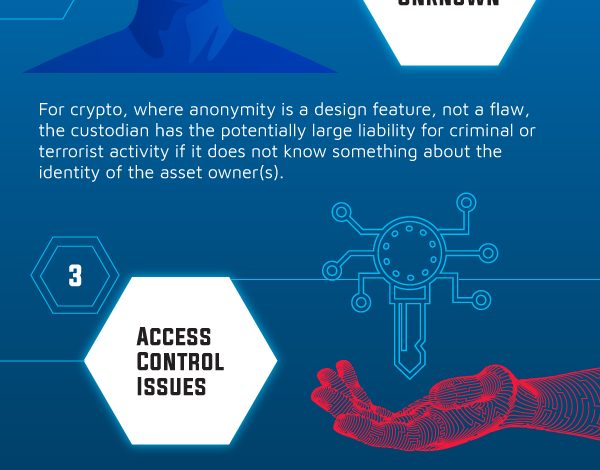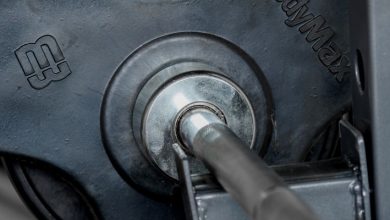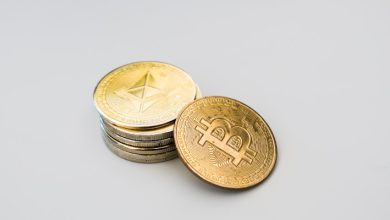The Risks of Storing Crypto on Exchanges

- Understanding the security vulnerabilities of crypto exchanges
- Why storing your crypto on exchanges can be risky
- The dangers of centralized storage for your digital assets
- How hackers target exchanges to steal cryptocurrencies
- Tips for safely storing your crypto outside of exchanges
- The importance of taking control of your private keys
Understanding the security vulnerabilities of crypto exchanges
When it comes to storing your cryptocurrency on exchanges, it is crucial to understand the security vulnerabilities that come with it. Crypto exchanges are often targeted by hackers due to the large amounts of digital assets they hold. Here are some of the key security risks associated with storing your crypto on exchanges:
- Phishing Attacks: Hackers may use phishing emails or websites to trick users into revealing their login credentials, allowing them to access their exchange accounts.
- Malware: Malicious software can infect a user’s device and steal their exchange login information, giving hackers access to their funds.
- Insider Threats: Employees of crypto exchanges may abuse their access to sensitive information or systems, putting user funds at risk.
- DDoS Attacks: Distributed Denial of Service attacks can disrupt exchange services, making it difficult for users to access their accounts or make transactions.
- Smart Contract Vulnerabilities: Some exchanges use smart contracts to facilitate trades, which can be exploited by hackers if they contain bugs or vulnerabilities.
It is essential to be aware of these security risks and take steps to protect your cryptocurrency investments. Consider using hardware wallets or cold storage solutions to store your digital assets securely, rather than keeping them on exchanges where they are more vulnerable to attacks. By understanding the security vulnerabilities of crypto exchanges, you can better safeguard your funds and minimize the risk of losing them to malicious actors.
Why storing your crypto on exchanges can be risky
Storing your cryptocurrency on exchanges can be risky due to several factors that investors should consider. One of the main risks is the potential for hacking attacks on exchanges, which have resulted in significant losses for users in the past. When you store your crypto on an exchange, you are essentially trusting a third party to keep your assets safe, which can be a risky proposition.
Another risk of storing your cryptocurrency on exchanges is the lack of control you have over your assets. When you hold your crypto in a personal wallet, you have full control over your private keys and can access your funds at any time. However, when your crypto is stored on an exchange, you are subject to their terms and conditions, which may restrict your access to your funds or even result in the loss of your assets.
Furthermore, storing your cryptocurrency on exchanges exposes you to the risk of regulatory issues. Exchanges are subject to government regulations and may be forced to freeze or seize your assets in certain situations. This lack of control over your funds can be a significant risk for investors who value financial privacy and autonomy.
The dangers of centralized storage for your digital assets
Centralized storage of your digital assets on exchanges poses significant risks that every crypto investor should be aware of. When you store your cryptocurrencies on an exchange, you are essentially handing over control of your assets to a third party. This means that if the exchange is hacked or goes bankrupt, you could lose all of your funds.
Furthermore, centralized exchanges are often targeted by hackers due to the large amounts of money they hold. These exchanges are a prime target for cyber attacks, and even the most secure exchanges have been breached in the past. Once hackers gain access to an exchange, they can easily steal funds from multiple users, including yours.
Another danger of centralized storage is the lack of transparency and accountability. Since exchanges are not required to disclose how they store and protect your assets, you are essentially trusting them blindly. In the event of a security breach or internal fraud, you may have little to no recourse to recover your lost funds.
It is essential for crypto investors to understand the risks associated with centralized storage and take steps to mitigate them. One way to protect your digital assets is to use hardware wallets or cold storage solutions, which give you full control over your private keys and funds. By keeping your assets off exchanges and in your own secure storage, you can reduce the risk of falling victim to hacks and fraud.
How hackers target exchanges to steal cryptocurrencies
When it comes to hackers targeting cryptocurrency exchanges to steal cryptocurrencies, there are several common methods they use to exploit vulnerabilities and gain access to users’ funds.
One way hackers target exchanges is through phishing attacks, where they create fake websites or emails that mimic legitimate exchanges to trick users into providing their login credentials. Once hackers have this information, they can easily access users’ accounts and transfer out their digital assets.
Another method hackers use is malware attacks, where they infect users’ devices with malicious software that can capture sensitive information, such as private keys or passwords. By gaining access to this data, hackers can then access users’ exchange accounts and steal their cryptocurrencies.
Additionally, hackers may also exploit vulnerabilities in an exchange’s security systems to gain unauthorized access to user accounts. This could involve weaknesses in the exchange’s network or infrastructure, which hackers can exploit to manipulate transactions or steal funds.
Overall, it is crucial for users to be aware of these risks and take steps to protect their crypto assets by using secure wallets and following best practices for online security. By staying informed and vigilant, users can reduce the likelihood of falling victim to hackers targeting exchanges to steal cryptocurrencies.
Tips for safely storing your crypto outside of exchanges
When it comes to safely storing your crypto outside of exchanges, there are several tips to keep in mind to protect your investments. Here are some best practices to follow:
- Use a hardware wallet: Consider investing in a hardware wallet to store your cryptocurrency offline. This hardware wallet provides an extra layer of security compared to online wallets.
- Backup your wallet: Make sure to regularly backup your wallet and store the backup in a secure location. This will help you recover your crypto in case your wallet is lost or damaged.
- Enable two-factor authentication: Add an extra layer of security to your crypto storage by enabling two-factor authentication on your wallet and exchange accounts.
- Diversify your storage: Consider spreading your crypto investments across multiple wallets and storage solutions to reduce the risk of loss in case of a security breach.
- Keep your private keys secure: Your private keys are crucial for accessing your crypto assets. Make sure to keep them secure and never share them with anyone.
By following these tips, you can enhance the security of your crypto investments and protect them from potential risks associated with storing crypto on exchanges.
The importance of taking control of your private keys
One of the most crucial aspects of safeguarding your cryptocurrency assets is taking control of your private keys. Private keys are essentially the passwords that grant you access to your digital assets. When you store your crypto on exchanges, you are essentially entrusting them with your private keys, which poses a significant risk.
By taking control of your private keys, you are ensuring that you have full ownership and control over your cryptocurrency holdings. This means that you are not reliant on the security measures implemented by exchanges, which can be vulnerable to hacking and other security breaches.
When you control your private keys, you can store them in secure hardware wallets or cold storage solutions, which are much less susceptible to cyber attacks. This provides an added layer of security and peace of mind, knowing that your assets are safe and under your control.
Additionally, having control of your private keys also gives you the flexibility to access and manage your cryptocurrency holdings at any time, without being subject to the operational hours or restrictions of exchanges. This level of autonomy is invaluable, especially in the fast-paced and volatile world of cryptocurrency trading.
In conclusion, taking control of your private keys is a critical step in securing your cryptocurrency assets and protecting them from potential risks and vulnerabilities associated with storing them on exchanges. By taking this proactive measure, you can ensure the safety, security, and accessibility of your digital wealth.



